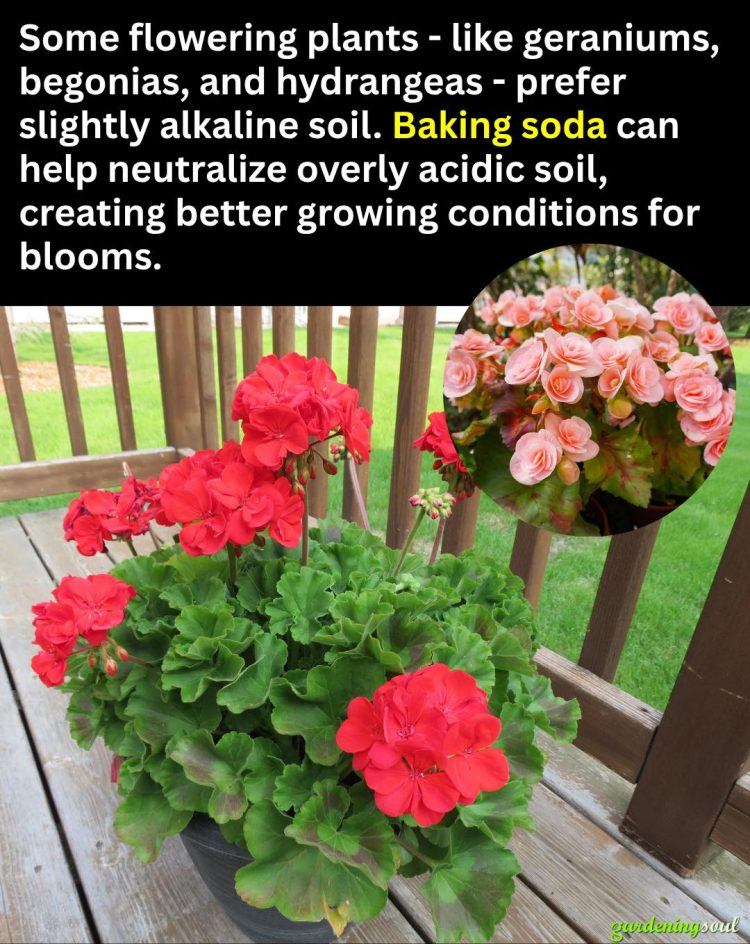Use this solution once every 3–4 weeks around the base of flowering plants. It’s especially effective for roses, petunias, and geraniums.
Caution: Don’t overuse; too much baking soda can throw off your soil’s balance.
2. Treat Powdery Mildew Naturally
Powdery mildew is a common issue that affects roses, cucumbers, squash, and other plants. Baking soda is a mild fungicide that can help control this problem.
DIY Spray:
1 tablespoon baking soda
1 teaspoon mild liquid soap
1 gallon of water
Spray the affected plants weekly, especially after rain. Be sure to test on a small leaf first to avoid burning.
3. Sweeten Tomatoes and Boost Blooms
Sprinkling a small amount of baking soda around the base of tomato plants can help lower soil acidity, improving flavor and plant health.
Apply a light dusting every few weeks
Water gently to help it absorb into the soil
This also helps other bloomers like geraniums and clematis thrive.
4. Clean Plant Leaves for Better Photosynthesis
Dust and grime can block sunlight from reaching leaf surfaces, reducing a plant’s ability to photosynthesize (and bloom). Clean foliage naturally using:
½ teaspoon baking soda
1 quart warm water
Soft cloth or sponge
Wipe down large leaves of plants like fiddle leaf figs or outdoor potted hibiscus to help them shine—and thrive.
5. Natural Weed Killer for Driveways and Cracks
Weeds sprouting in cracks or between pavers? Baking soda can help dehydrate and kill small weeds without chemicals.
Sprinkle directly onto damp weeds growing in cracks
Repeat weekly for best results
Avoid using this in garden beds, as it can alter soil pH for nearby plants.
see continuation on next page
